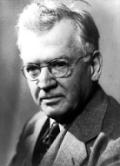A Quote by Edward Bulwer-Lytton, 1st Baron Lytton
Related Quotes
No matter what the cause, even though it be to conquer with tanks and planes and modern artillery some defenseless black population, there will be no lack of poets and preachers and essayists and philosophers to invent the necessary reasons and gild the infamy with righteousness. To this righteousness there is, of course, never an adequate reply. Thus a war to end poverty becomes an unanswerable enterprise. For who can decently be for poverty? To even debate whether the war will end poverty becomes an exhibition of ugly pragmatism and the sign of an ignoble mind.




































